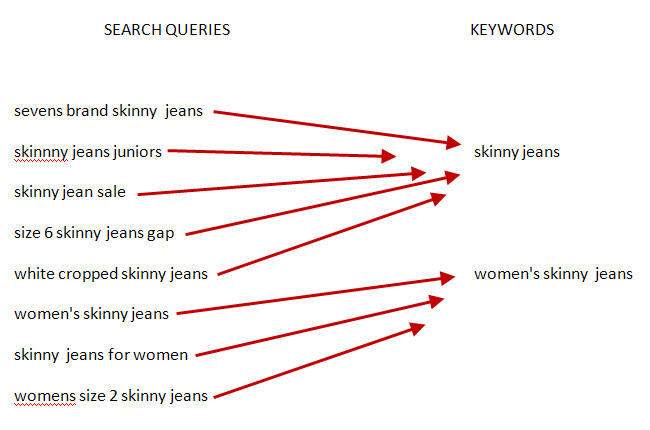In casual conversation, the terms “keyword” and “search query” are often used interchangeably, but there is actually a difference. So what is the difference between a keyword and a search query?
A keyword is like the Platonic ideal of a search query: it is an abstraction that we extrapolate from various search queries.
A search query or search term is the actual word or sequence of words that a search engine user types into the search box.
You can think of a search query as the actual application of a keyword: it may be misspelled, messy, or have other words attached to it, or it may be identical to the keyword.
As search marketers,what we target are keywords.
In SEO, we focus on these abstractions by optimizing page content (using keywords in URLs, title tags, body text, image file names, meta descriptions, etc.), creating inbound links with keywords in the anchor text, etc.
In PPC, we target keywords by bidding on them and using them in our ads and landing pages.
Search queries, on the other hand, are the real-world terms that people use to find these pages through paid organic search.
So, for example, you can bid on the keyword “skinny jeans”. By looking at the search query report in AdWords, you can see all the queries that visitors entered to trigger your ad.
Assuming you’re using broad match, those queries can include the exact keyword, as well as infinite variations like “skinny jeans”, “women’s skinny jeans”, “dark skinny jeans”, “size 0 skinny jeans”, and so on.

If some of these search queries have a clear and repeating pattern (for example, “women’s skinny jeans”), you could create an ad group and corresponding ads for that search query, at which point the search query is would become one of your keywords.
Search queries are a broader set than keywords, and by looking at search queries, we can find new keywords to target our search marketing campaigns. (Search query mining is also a good way to find negative keywords.)
Any questions?
